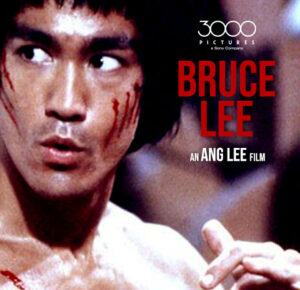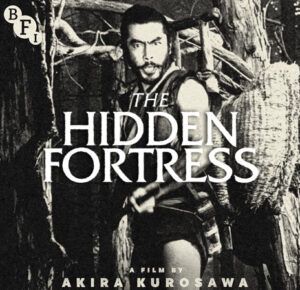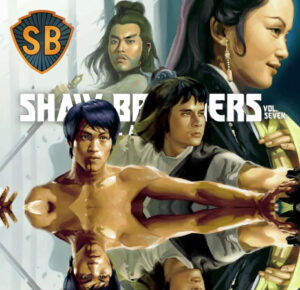Director: Michael Hui
Co-director: John Woo
Cast: Michael Hui, Sam Hui, Ricky Hui, Stanley Hui, Shih Kien, Angie Chiu, Chen Hung Lieh, Huang Ha, Tsang Choh Lam, Richard Ng, Billy Chan, Chan Laap Ban
Running Time: 94 min.
By Matthew Le-feuvre
Hong Kong comedy veteran, Michael Hui, has, for veritable reasons, seemed to excel both artisitcally and commercially whenever he’s temporarily halted, taken stock and examined his lively career with honest conviction: afterall, comedy in all of its unique and vivacious forms is a far more complex discipline to reproduce, even sustain, compared to, say, the traditionalism of the bard. However since the early 70’s, Hui has perpetually strived to reinvent himself, often employing a symbolic blank canvas to draw inspiration from.
With this uncommon approach, Hui has ably maintained an array of conciously realized and distinguishable characters, each retaining singular quirks and visual nuances befitting of any superstar of Hui’s worth: if it isn’t outrageous disguises or goofy gimmicks, his sardonic verbal dexterity is an equal strength not to be overlooked; in fact, Hui’s repertoire – which could be directly matched with the late, great Peter Sellers – is so multi-faceted and perfectly delivered he’s even funnier when his personas act in a laconic manner, exhibiting wry (facial) expressions or gestures of bemusement – sometimes at the expense of physical discomfort. A craft that deservedly warrants appreciation.
A former English teacher, Micheal Hui (aka Hui Kune-Man) made an extraordinary debut as a game show host on HKTVB in 1971. Following on from his extensive, needless to say, highly animated television work, Hui co-partnered with his younger brother, Sam, to present The Hui Brothers Show – a weekly airing that was constructed around reciprocal banter, jovial songs (from Sam) and short, intelligently devised sketches. Again risible and idiosyncratic, yet pleasingly, family orientated without the slightest suggestion of profanity or crass dialogue, The Hui Brothers Show swiftly catapulted both Michael and Sam into film stardom; though initially with rival production studios, while middle brother, Ricky eventually graced the kinetic proceedings as a daffy addition, tantamount to enunciating deadpan retorts, cock-tailed with either coy embarassment or blank faced stupidity.
Prior to the Hui’s triumvirate collaborations throughout the mid to late 70’s/early 80’s with unsurpassed classics such as: Games Gamblers Play (1974), The Last Message (1975) and Security Unlimited (1981), the monopolistic force of the renowned Shaw Brothers were duly impressed with Micheal’s brand of infectious genius to the point of contracting the elder Hui to spearhead a series of comedy slanted features (a genre the Shaws’ hadn’t really delved too much into beforehand!). The first, The Warlord (1972) was for its era, sharply tongued and irrepressibly funny, despite containing mildly controversial sub-themes. A huge box office sensation that almost went toe to toe with Bruce Lee’s The Way of the Dragon (1972), expeditiously the Shaws’, undoubtedly gratified, injected further time and sponsorship into Hui’s ballooning popularity: what annually suceeded was The Happiest Moment (1973), Scandal (1974) and Sinful Confessions (also 1974) until – like the majority of contractees – Hui objected against the financial restrictions imposed by the Shaws’ then-apparent ravenous preoccupation with wealth.
By then, the balloon had burst, and pastures new beckoned in the form of Golden Harvest, home to numerous ex-clear water bay refugees: Jimmy Wang Yu, Lo Wei and Huang Feng for example. Happily, Hui was permitted to establish ‘The Hui Brothers Film Company’ in association with Golden Harvest president, Raymond Chow and his business counterpart, Leonard Ho. Together with his sibblings, and an almost carte blanche arrangement, Hui began developing scripts which in comparative terms were innovative and fresh, yet not all critics were receptive or enthused with the content. However that all changed in 1976 with the highly anticipated release of The Private Eyes.
Hailed as one of the funniest films – by Hong Kong standards – of the 70’s to emerge in consequence to a flagging industry still (though temporarily) fixated with Bruce Lee’s commercial absense. Hui, instead, ingeniously and mirthfully takes centre stage as Joseph Wong Yeuk-Sze, a parsimonious, uber conceited and utterly inept private eye, who is more attentive too his social status and bank balance than investigating the likes of amorous philanderers, fraudsters, a mad bomber and/or predictable shoplifters.
Plot-wise, Private Eyes on first viewing could appear as a rootless exercise into the profit margin, anchored only by witty dialogue and situational slapstick as Hui’s script/direction more than counterbalances for what could be perceived as (a) deliberate incoherence. Antagonists and protagonists (Shek Kien and Richard Ng, respectively) alike drift into the activiities and disappear with frequent regularity only to reconvene at the picture’s finale, staged in a local cinema during the projection of A Queen’s Ransom (1976). But on further inspection, Hui has constructed this masterpiece like a gliding sequence of interlinking mini-sketches scaffolded by co-stars, Ricky and Sam Hui, as fledging assistants, Puffy and Lee Kwok Kit – each as wacky in their approach to surveillance as Michael/Wong is to displaying (in)effective hand-to-hand combat. This was highlighted in a 1990 documentary entitled The Best of Martial Arts (aka The Most Deadiest Art). Famously, it is a scene in which Wong believes his wallet has been lifted by an opportunistic pickpocket. He pursues his suspect into a hotel kitchen where a ludicrous duel ensues as cooking implements, a pair of footlong sausages (substituted as Nunchakus) and a wok are all dynamically employed under the careful arrangements of Sammo Hung Kim Po.
To divulge more, specifically pertaining to Hui’s spirited Bugs Bunny visage or impromptu flatulence as a result of eating too many carrots, or demonstrating aerobics with an uncooked chicken would be considered an unsolicited grievance, especially to latent audiences interested in rediscovering cult retrospectives. Nevertheless Private Eyes is a film that, if nothing else, assuredly justifies acclaim. There are no enigmatic complexities, spiritual metaphors or Taoist philosophies contained therein: it’s simply an irresistible treat!
(This review is dedicated to Michelle Capps: an angel who walks in the light).
Matthew Le-feuvre’s Rating: 9/10






















2 Comments